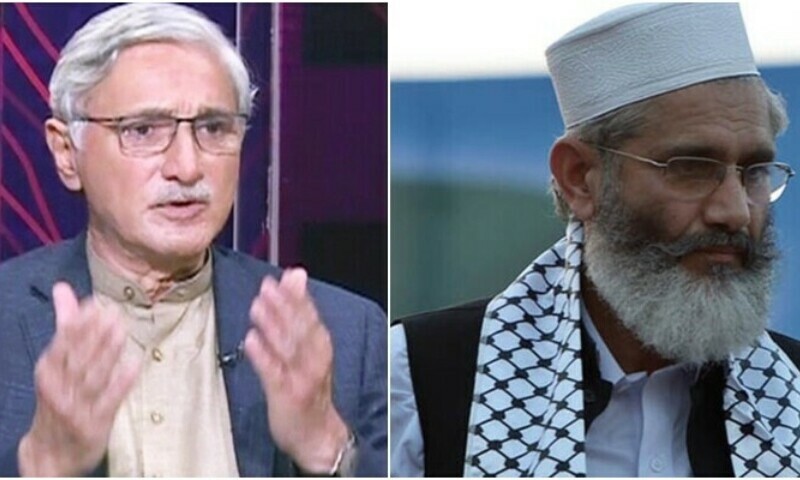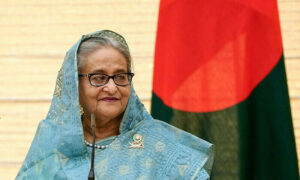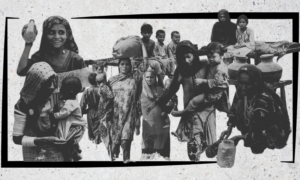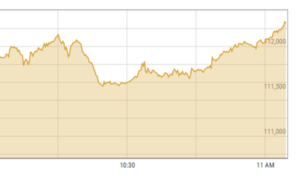In shocking developments on Monday, Istehkam-i-Pakistan chief Jahangir Tareen announced his decision to quit politics altogether while Sirajul Haq resigned as the emir of Jamaat-i-Islami (JI) following their parties’ dismal performances in the general elections.
In a post on social media platform X, Tareen said he wanted to thank his supporters and congratulate his opponents in the general elections.
“I have immense respect for the will of the people of Pakistan. Therefore, I have decided to resign from my position as chairman IPP and step away from politics altogether,” he said, expressing his gratitude to his party members and wishing them well.
“I will continue to serve my country to the best of my ability in a private capacity. May the next few years see Pakistan prosper,” he said.
Shortly after, Haq posted on X that he had “accepted the responsibility for defeat” in the elections.
Tareen took a big electoral beating in Multan against PTI-backed Malik Aamir Dogar in the February 8 general elections. The former PTI leader managed only 50,166 votes compared to Dogar’s 143,613.
He even lost in his hometown of Lodhran in the NA-155 constituency, managing 71,128 votes against PML-N’s Khan Mohammad Siddiqui with 117,671 votes.
Haq, meanwhile, contested in Lower Dir’s NA-6 and managed 56,538 votes against PTI-backed Mohd Bashir Khan, who garnered 81,060 votes.
The parties showed dismal performances in the polls with two seats for the IPP in the National Assembly and none for the JI.
IPP President Aleem Khan said he was “deeply saddened” by Tareen’s decision.
Political history
Tareen is known as one of the wealthiest men in politics, owning thousands of acres of farmland, a private plane and running some of the largest sugar mills in the country.
Tareen had forayed into politics in 2002 when he was elected to the National Assembly on a Pakistan Muslim League-Quaid (PML-Q) ticket. The Forman Christian College alumnus had served as an adviser to former Punjab chief minister Chaudhry Parvez Elahi on agriculture and social sector initiatives.
In 2004, he was inducted into the federal cabinet and served as a minister with the portfolio of industries, production and special initiatives under former military dictator Pervez Musharraf. Unsurprisingly, his sugar mills flourished under his tenure as minister for industries.
In the 2008 elections, Tareen was re-elected as a member of the National Assembly for the second time from NA-195, this time on a PML-Functional ticket. But by late 2011, Tareen — who had initially planned on forming his own party of ‘clean politicians’ — had joined Imran Khan’s PTI, saying that his vision was similar to that of the cricketer-cum-politician.
Two years later, Tareen contested — and lost — the 2013 general elections from a seat in Lodhran, a place he had heavily invested in in terms of business, charity and development. In the 2015 by-elections, Tareen was re-elected as an MNA for a third time from NA-154 on a PTI ticket.
In 2017, Tareen — who was at this point the PTI secretary general — was disqualified for life by the Supreme Court for being “dishonest” about his finances. He was found guilty under Article 62(1)(f) of the Constitution, the same article under which then-premier Nawaz Sharif was disqualified for life in July the same year.
After the verdict, Tareen had resigned as the PTI secretary general but very much remained a part of the party. His influence was evident when, despite being disqualified, he gave a detailed briefing on agriculture to the PTI government’s federal cabinet in 2018.
But in 2020, Tareen was one of several bigwigs named in a sugar inquiry commission — formed on the directives of then-premier Imran to probe the rise in the price of the commodity. It was the subsequent investigation into the sugar scam which led to the souring of his relationship with Imran.
That year Tareen departed for London for about five months, while the Federal Investigation Agency (FIA) sought details of his assets in Pakistan and abroad, his bank transactions, especially his transfer of money abroad.
In 2021, the FIA formally booked Tareen and his son Ali Tareen for fraud and money laundering — a charge he vociferously denied. The same year, Tareen formalised the split in the ruling PTI when he announced parliamentary leaders of “his group” — both in the national and the Punjab assemblies.
Even though the PTI insisted that the party and members of the JKT group would move forward as one, Tareen had started raising his voice against the government’s policies. He also publicly admitted that he had played a key role in the formation of the party’s government in Punjab by using his aircraft to approach independents who had won in different constituencies of the province.
In 2022, the JKT group took centre stage in the politics of Punjab as both the PTI government and the opposition urged the group to play a decisive role in the formation of the provincial government. At this point, then-Punjab chief minister Usman Buzdar had resigned in favour of Elahi as Imran tried to wrangle up enough support to survive the no-confidence motion brought against him by the Pakistan Democratic Movement (PDM).
Soon after, Abdul Aleem Khan — a former Punjab minister and Imran’s close aide — announced that he would be joining the JKT group, lamenting the sidelining of PTI loyalists. In April 2022, the JKT group joined hands with the PDM to oust Imran as prime minister through a no-confidence motion.
A month after the violent events of May 9, 2023 — when protests broke out in the country following Imran’s arrest — Tareen launched his new political party, the IPP, with old faces. The party was formed following a proposition floated by the powers that be to set up a ‘parallel’ PTI to contain Imran’s party ahead of the general elections. Tareen was made the IPP’s patron-in-chief while Aleem was made the party president.
After the PDM government’s tenure ended in August 2023, JKT group stalwarts such as Aleem and Awn Chaudhry maintained close ties with PML-N’s Sharifs, including visits to London and personal interactions in Pakistan.
By October, the Election Commission of Pakistan (ECP) had officially registered the IPP, paving the way for the party to contest elections. The same month, the IPP held a maiden public rally in Lahore where Tareen said some in the PTI had worked tirelessly to follow a dream of making ‘Naya Pakistan’ but could not do so as the party gradually replaced its original team after assuming power and individuals who were unaware of the party’s vision took the helm.
In January, the Supreme Court quashed lifetime disqualification for lawmakers under Article 62(1)(f) of the Constitution, paving the way for Tareen to contest the general elections.
He formally launched his party’s election campaign on January 15, pledging to address the issues faced by voters and expressing the desire to steer the country towards prosperity.
Meanwhile, Haq’s net worth has frequently ranked among the smallest, with him declaring assets worth a mere Rs2.9 million in his nomination papers in 2018. Two years later, in his annual financial statement submitted to the ECP, he reported owning 12 kanals of inherited land and a business worth Rs361,000 to go with Rs600,000 in his bank account.
During the 2018 elections, Haq lost his stronghold in both Upper and Lower Dir to the PTI. Except Inayatullah Khan, all the JI candidates, including Haq, were defeated by PTI candidates in both districts.
In the NA-7 constituency, Haq faced a crushing defeat at the hand of PTI’s Bashir Khan, who garnered 63,017 votes compared to the JI chief’s 46,040. The JI had disputed the results.
In April 2023, Haq launched a “consensus offensive” and held meetings with then-prime minister Shehbaz Sharif and Imran to bring an end to the impasse between both sides on the issue of elections.
The past 12 months have been rough for the JI, which was unable to get its Karachi mayoral candidate (Hafiz Naeemur Rehman) elected following local government elections despite enjoying a numerical advantage on paper after securing PTI’s backing.







